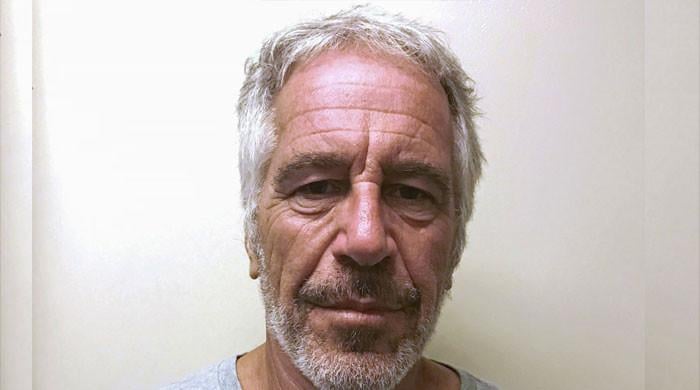Over 33,000 Jeffrey Epstein Files Released by Republican-Led House Committee, Including Victim Videos and Audio
Republican-Led House Releases 33,000+
Epstein Files Including Victim Videos and Audio.
A GOP-controlled House committee
released over 33,000 Epstein case documents—court files, victim interviews,
flight logs, and prison footage. Critics note much was already public; survivors
continue pushing for full transparency.
US financier Jeffrey Epstein appears in a
photograph taken for the New York State Division of Criminal Justice Services'
sex offender registry March 28, 2017 and obtained by Reuters July 10, 2019. —
ReutersA Republican-led committee in the US House of Representatives said
Tuesday it had...
A major disclosure unfolded this week as a Republican-led
House Oversight Committee released an expansive collection of documents and
media related to the Jeffrey Epstein case. The trove—over 33,000 pages—includes
court records, police interviews, victim testimonies captured on video, and
audio files from Florida investigations. Despite claims of groundbreaking
transparency, many records appear to have been previously accessible.
For survivors and the public, this release is far more than political theater. Victim videos—some from as early as 2005—offer raw, painful glimpses into the abuse they endured. In one 17-minute interview, an anonymized girl recounts how Epstein paid her $350 for a sexual “massage” when she was just 17, providing eating heartbreak with vivid clarity.
What’s Inside the Files
The documents span two decades of investigation. Released
content includes:
- Victim
interviews
and audio recordings from Florida law enforcement.
- Court
documentation
related to Epstein and Ghislaine Maxwell’s legal proceedings.
- Flight
logs,
detailing the financiers’ infamous ‘Lolita Express’ usage from 2000–2014.
- Surveillance
footage,
including the long-missing one-minute clip before Epstein’s suicide in
August 2019—fueling intrigue around his death.
The House has also issued subpoenas to the Justice Department, Maxwell’s estate, and Epstein’s estate, while calling for Maxwell to testify.
Transparency or Political Ploy?
Critics quickly dismissed much of the release as repackaged
material already in the public domain. “Nearly everything Republicans just
supposedly ‘released’ ... has already been released,” declared Representative
Jim McGovern.
Nonetheless, proponents say survivor-reported details and
the unredacted material add weight to the files.
Lawmakers Thomas Massie (R-KY) and Ro Khanna (D-CA) continue pushing the Epstein Files Transparency Act, seeking full public access to remaining records. But House Speaker Mike Johnson decried their effort as “inartfully drafted” and unnecessary, warning of victim privacy risks.
Emotional Toll on Survivors and
Lawmakers
The emotional fallout is real. During a closed-door meeting
with survivors, Representative Nancy Mace—herself a survivor—became visibly
distressed and suffered a panic attack, describing witnessing their testimonies
as deeply destabilizing.
Outside, survivors called for sweeping transparency, urging Congress to bring Epstein’s network fully to light. They've even hinted at compiling their own version of a client list if the government continues withholding critical information.
What Comes Next?
This release marks the beginning rather than the end of a
disclosure campaign. Lawmakers continue pressing for the full unredacted files
while justice advocates push for accountability. The missing one-minute footage
and patterns revealed in flight logs, interviews, and surveillance have only
intensified public scrutiny—and conspiracy speculation—surrounding Epstein’s
death.
Ultimately, survivors and lawmakers alike emphasize that transparency is not just procedural—it’s central to healing and preventing future atrocities. The demand remains: no one should be above the law.

